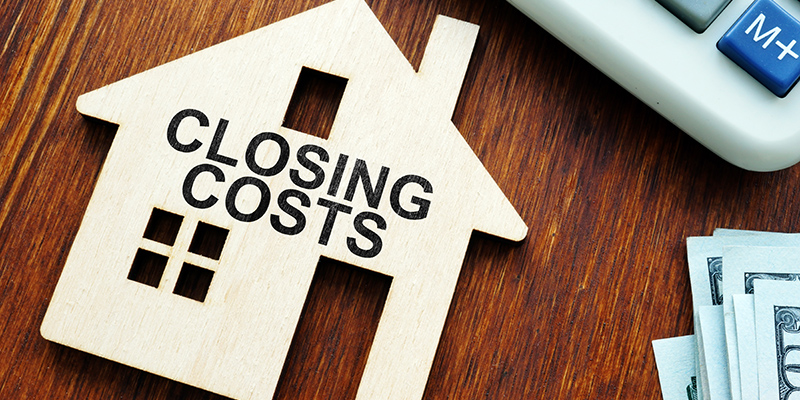Several closing costs come with the purchase of a new home. And if the house is part of a homeowners association, one of the costs is the HOA capital contribution. But what is this fee anyway?
Understanding the HOA Capital Contribution Fee
Buying a home is one of the most significant investments. But, homes are costly. In addition to the actual price of the house, buyers typically have to pay other fees associated with the sale. These include the real estate agent’s fees, relevant taxes, and title insurance costs.
However, one of the fees a buyer might find in their list of closing costs is the HOA capital contribution. What are capital contributions?
A capital contribution is a fee that new owners pay to the homeowners association, and it is a fee that essentially gives owners equity within the association. In other words, owners pay this initial fee to become a part of the HOA. Other terms used include HOA working capital, initiation, and transfer fees.
Generally, owners in development only need to pay capital contributions once. This usually occurs when the developer transfers control of the association to the homeowners. In this case, when a home is sold to a new owner, that new owner does not need to contribute working capital.
However, for some associations, every new owner must pay this fee. That means the association can expect another capital contribution payment whenever a home or unit changes hands. It depends on whether or not this requirement appears in the association’s governing documents.
The purpose of a capital contribution is to supplement the reserve fund. All owners benefit from the HOA’s reserves because it allows the association to make long-term repairs or replacements for its assets. While understandably inconvenient, charging an HOA capital contribution fee is entirely legal.
The Importance of an HOA Reserve Fund
 The homeowners association reserve fund is a crucial part of financial stability. It basically ensures that the HOA has sufficient funds when significant repairs or replacements arise. The reserve fund also comes in handy in times of emergency or disaster.
The homeowners association reserve fund is a crucial part of financial stability. It basically ensures that the HOA has sufficient funds when significant repairs or replacements arise. The reserve fund also comes in handy in times of emergency or disaster.
To know whether or not an HOA has adequately funded reserves, it is essential to conduct a reserve study. This study determines how much an HOA needs to have in its resources at any given point by examining the assets and finances of the association. Because of the complex nature of the study and the skills needed to complete it, boards should outsource the job to a reserve professional.
Remember that not all homeowners associations are legally required to conduct reserve studies. It depends on state laws and the HOA’s governing documents. For instance, in California, Civil Code § 5550 states that HOAs must perform a reserve study once every three years unless the total replacement costs fall below 50% of the HOA’s gross budget.
How Much Are Capital Contributions for HOAs?
When you buy a new home, the last thing you need is to add another cost to the laundry list of expenses you already have. As such, it is normal for buyers to want to know how much they can expect to pay in capital contributions. Unfortunately, no exact number can universally apply to all communities.
The capital contribution fee one association charges can differ entirely from the price of another. Associations typically decide how much to charge based on their governing documents, size, condition, and age. There may also be specific state or local laws that can affect this fee.
Capital contribution requirements can range anywhere from $300 to thousands of dollars. That said, buyers should expect to pay two or three times the amount of their regular dues, which differs from the capital contribution. The capital contribution is a one-time fee that usually goes to the reserves, whereas regular dues are recurring payments that go to the association’s operating funds.
For concerned buyers, it is a good idea to ask the seller about any capital contribution fees that come with the sale of the property and how much it will cost. In some cases, you can negotiate with the seller and ask them to cover the cost of the fee. But, considering the buyer is the one who will benefit from the price, it’s reasonable for the seller to reject this offer.
Consequences of Nonpayment of HOA Capital Contribution
 The association’s governing documents typically contain the requirement to pay a capital contribution fee. When buyers sign the agreement to purchase the home, they also agree to take on the obligations of HOA members, including paying the working capital fee.
The association’s governing documents typically contain the requirement to pay a capital contribution fee. When buyers sign the agreement to purchase the home, they also agree to take on the obligations of HOA members, including paying the working capital fee.
A homeowner can refuse to pay this fee, but such a decision carries a heavy penalty. An HOA generally can apply late fees and even interest, inflating the owner’s financial obligation. Associations can also typically place a lien on the home and, subsequently, foreclose on that lien.
A working capital fee is not worth losing your home over, so it is best to settle the balance to avoid problems. Of course, you can also avoid a capital contribution fee by researching the house you plan to purchase.
All Things Considered
The HOA capital contribution fee is essential to the continuous operation of a community. For some associations, all new homeowners must pay this fee; for others, it isn’t a requirement. Regardless, the price is a way for the association to add to its reserves, which play a significant role in the financial health of the HOA. If a buyer wishes to avoid paying a working capital contribution, it is best to look for a home that either does not belong in an HOA or does not require this fee.
Clark Simson Miller can help homeowners associations manage capital contributions and reserve funds. Call us today at 865.315.7505 or contact us online to learn more about what we do!
RELATED ARTICLES:
- What Is An HOA Reserve Study? Is It Necessary?
- The Proper HOA Response To An Emergency
- Operating Funds vs Reserve Funds: What’s The Difference?

